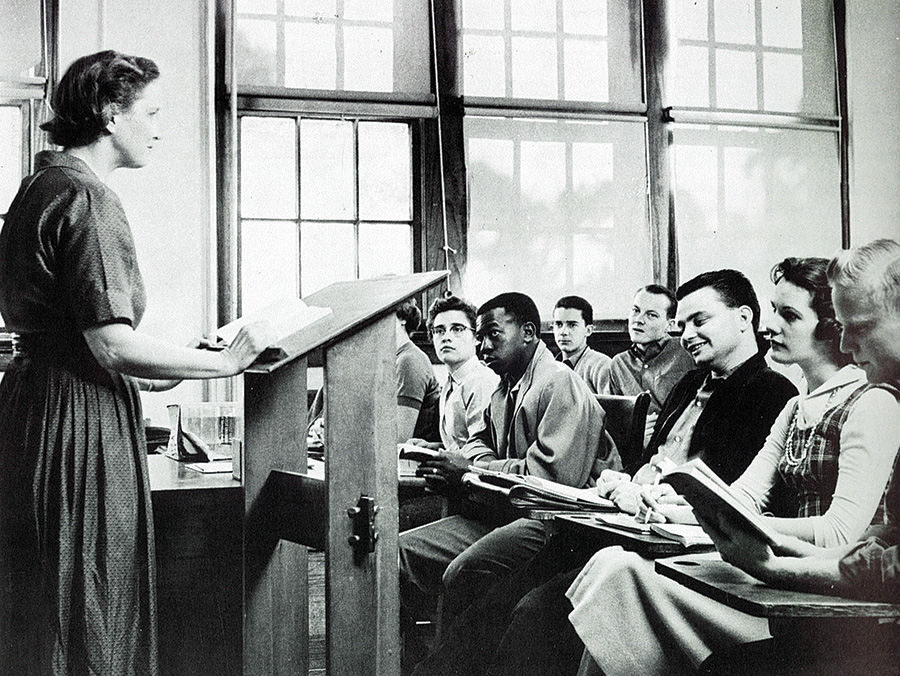
Thirteen decades ago on Sept. 16, 1890, Joshua C. Chilton established the Texas Normal College and Teacher Training Institute in a little prairie town known as Denton. The school's opening was modest -- 70 students attended classes in a rented space above a hardware store nestled among other small businesses on the downtown Square. "It will be our aim," Chilton said at the time, "to become leaders in the education of the young men and women of Texas, fitting them to creditably fill the most important positions in business and professional circles."
So that's where we started. But where are we now -- and where are we headed?
For UNT, "130" isn't a number -- it's a legacy. From those humble beginnings, we've expanded in both size and reputation, with our forward-looking approach to academics and innovation gaining us recognition at the state, national and global levels.

